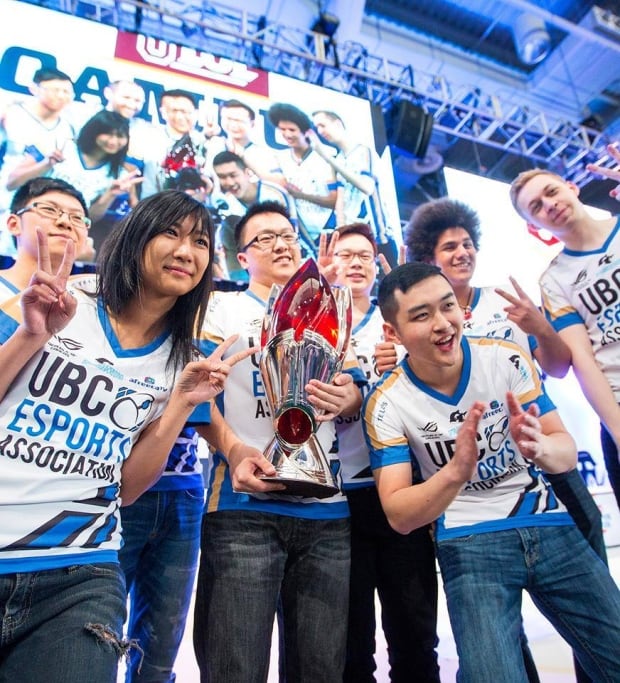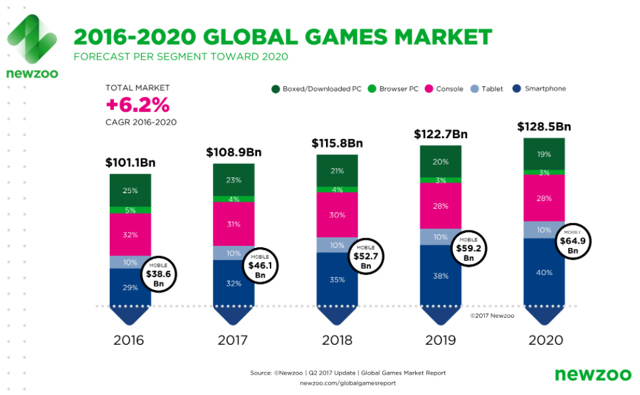- Rising popularity of the sport has also created a demand for coaches.
- “I saw how eSports is similar to traditional sports. I saw an opportunity. There wasn’t really anyone who was doing data publicly on League of Legends,” he said referring to the popular multiplayer battle arena game.
By Matthew Black, CBC News Posted: Sep 03, 2017 9:00 AM PTLast Updated: Sep 03, 2017 1:34 PM PT
When Denis Beausoleil first began breaking down data, he thought it would help his fledgling basketball coaching career.
Beausoleil, 36, learned data analysis skills while completing an undergraduate degree, and did well enough to earn a spot at the University of Victoria’s coaching institute.
“I did it to help myself be a better basketball coach but it opened up opportunities,” he said.
One of those opportunities materialized away from the hardwood and in the virtual world of competitive video gaming, better known as eSports. It’s an industry that has ballooned in popularity in recent years, drawing millions of dollars in corporate sponsorships as well as drawing thousands of fans to packed arenas, including in Toronto and Vancouver.
The rising popularity of the sport has also created a demand for coaches.
So, when Beausoleil found himself at an anime convention nearly three years ago and spotted a UBC eSports booth, he introduced himself and made the team an offer:  take the coaching and analytical skills he’d use with a basketball team and apply it to the world of competitive gaming.
“I saw how eSports is similar to traditional sports. I saw an opportunity. There wasn’t really anyone who was doing data publicly on League of Legends,” he said referring to the popular multiplayer battle arena game.
Last year, Beausoleil helped the UBC squad beat 31 other collegiate teams to win its second straight LOL Campus Series title in 2016 as the top college team in North America.
He’s turned that experience into data analyst jobs for both professional eSports and basketball organizations.
“I coached basketball for 10 years before I got paid anything … I was happy to volunteer my time. I wanted the experience and to learn about the game.”
He’s one of a growing number of eSports coaches who rely on experience, data, and management skills to help amateur and professional players improve their play.
“You don’t have to be the greatest statistician. It’s a piece of the argument and I try to make it convincing.”
Big league coaches
Brandon “Mash” Phan is just 22, but has already been playing professionally for almost 5 years.
Phan picked up League of Legends for the first time on Christmas Day 2009, and by the next summer grew confident that he could play for more than just fun.
“I realized that this could be a thing for me,” he said.
Since then, the Toronto resident has played for several pro teams and has seen coaching evolve from a novelty to a necessity.
“It was funny to see a coach. People thought ‘this guy is just here for show.’ Now, we have almost a minimum of two coaches per team.”
Phan now plays for Echo Fox’s League of Legends squad — a team owned by Canadian-born former NBA player Rick Fox — where Beausoleil provides data-based scouting reports on opponents.
His typical in-season work day starts with an hour-long players meeting with coaches to talk strategy and gameplan.
“We talk about anything we want to try. Anything we’ve seen from other regions.”
A three-hour practice session follows that meeting, then an hour break for lunch before the team ends the day with another three-hour practice.
“Most coaches are former players so there’s a lot of respect for those in the coaching role.”
Phan says good coaches go beyond gameplay, and work to improve teamwork and maintain a calm, healthy environment.
“Coaching facilitates a healthy discussion and positive feedback and making sure each player owns up to their own play if they misplayed it or played well.”
Working up the ranks
Coaching isn’t just for members of elite teams, it’s also for those players looking to replace them.
Hearthstone player and UBC eSports alum Benton “ItzBolt” Chan has made coaching amateur players into a steady sideline business.
Chan charges clients $15 US an hour for an individual online coaching session lasting up to four hours long where he works on strategy and gameplay.
“For a while I was thinking I don’t need a part time job because I can do this on the side.”
Chan, 23, uses social media to promote his service and typically draws players from as far away as Asia and the United States who are looking to advance to the elite level.
He says it’s a competitive industry, with other coaches charging anywhere between $5 and $150 US per hour for one-on-one sessions.
“I have to convince my clients that I’m the better coach.”
He helps players prepare for tournament play, and advises them ahead of tournaments on how to beat elite level talent. He says that while coaching is important, just like in real sports, it’s up to the players to apply the lessons in future competitions.
“If you want to be better in the long term you want a coach who can get you thinking.”
Source: http://www.cbc.ca/news/canada/british-columbia/coaching-competitive-esports-1.4269619











by Jonathan Easton
about 3 hours ago